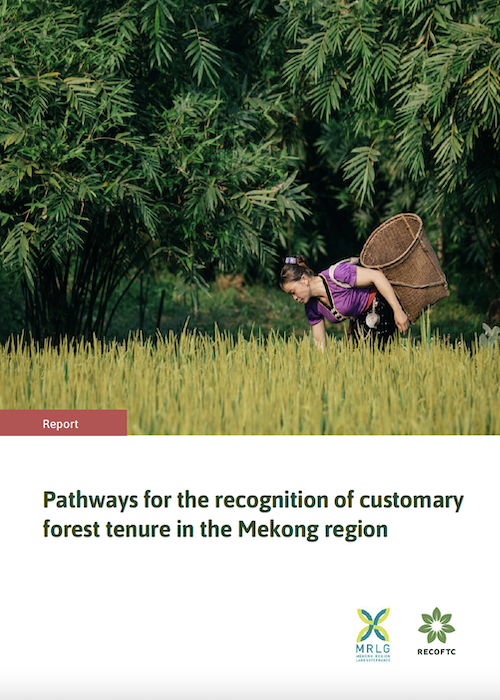Resource information
Globally, about 2 billion people claim ownership of their homes and lands through a customary tenure system. Customary tenure has long been insecure and is under growing pressure in many places. But it is also increasingly recognized through a variety of mechanisms, formal and informal. RECOFTC released a new report on the recognition of customary tenure of communities living in forested landscapes in Cambodia, Lao People’s Democratic Republic, Myanmar and Viet Nam. It also includes a case study from Thailand. The report identifies three main pathways into which mechanisms for recognizing customary tenure can be categorized: self-recognition by communities; joint recognition by communities and others; and formal recognition in legal frameworks. It introduces a conceptual framework for assessing these mechanisms. The framework provides guidance for analyzing the mechanisms through the lens of rights, livelihoods, governance, gender equity and social inclusion, customary and traditional practices and dispute resolution.

